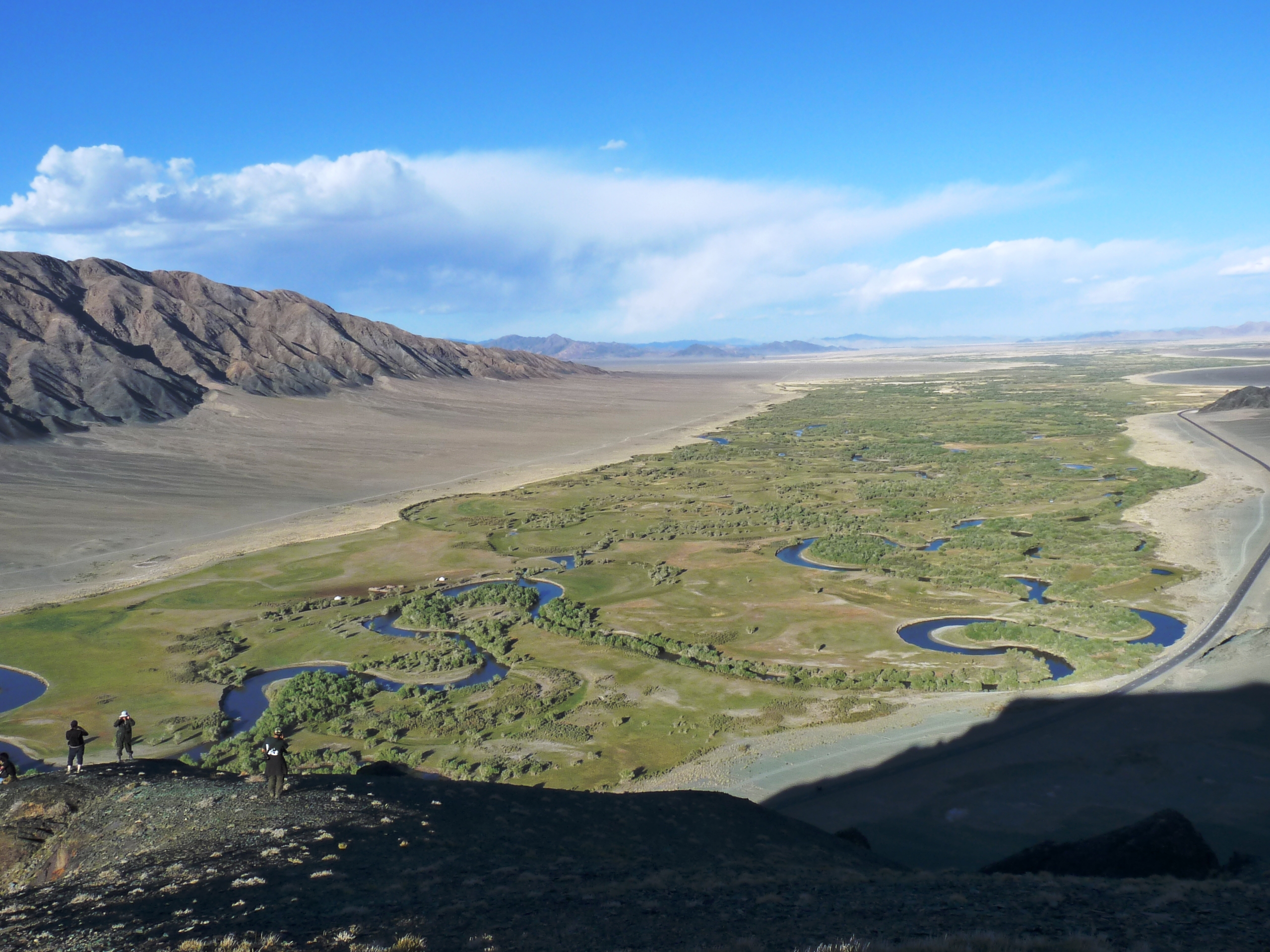Frankfurt Declaration: Together for Biodiversity
Before the World Summit on Nature in Montreal: Call for science, politics, business and civil society to join forces for nature-positive corporate action
 „Nature-based solutions“ © Senckenberg
„Nature-based solutions“ © Senckenberg
One week before the start of the 15th Conference of the Parties on Biological Diversity (CBD COP15) in Montreal, an alliance of German science and non-governmental organisations calls for an end to economic activity against nature in its “FRANKFURTER DECLARATION” published today. In their position paper, the organisations make demands on the German government and the European Union for the World Summit on Nature to succeed. At the same time, they make concrete proposals to make a nature-friendly economy the standard. In doing so, they offer their expertise to solve humanity’s most urgent challenge – the “twin crises” of biodiversity loss and climate change.
Biodiversity – the variety of life from genes to species to the diversity of habitats – provides us humans with vital ecosystem services. Nature provides food and raw materials, regulates the climate, material cycles and erosion, and offers space for recreation and education. The total economic value of these “services” is estimated to be in the order of 170 to 190 trillion US dollars per year. The current economic model takes these services of nature unpaid – with the consequence of overuse and destruction of natural resources and thus our most important basis of life.
“The climate crisis is much better researched scientifically than the crisis of biodiversity loss. There is an urgent need to catch up here,” says Prof. Jörg Rocholl, President of the international business school ESMT Berlin. “How can we put a price on biodiversity loss, as we already know from CO2 emissions? So far, there is no consensus for such a valuation to motivate companies to take stronger action. We need the interdisciplinary cooperation of natural scientists and economists to develop the right and important protection concepts and to attach key figures to the overexploitation of the environment.”
A broad alliance of German scientific and non-governmental organisations has therefore set itself the goal of creating all the necessary conditions for nature-positive corporate action. In the “Frankfurt Declaration” published today, the alliance calls on science, politics, business and the public to join forces and sees Germany in a pioneering role. As the fourth largest economy in the world, Germany has an enormous “biodiversity footprint”: The global value chains of German companies have a considerable impact on nature and often contribute to its destruction. Moreover, there is hardly a country with more scientific knowledge, comprehensive biodiversity data and ambitious initiatives for global nature conservation, the researchers say in their statement.
Dr Christof Schenck, Managing Director of the Frankfurt Zoological Society and winner of the German Environmental Award 2022: “We urgently need a turnaround! After the sobering outcome of the World Climate Summit in Sharm-el-Sheikh, which has just ended, this applies all the more to the World Summit on Nature in Montreal. What is needed is a binding global agreement of historic proportions to protect nature. It must set the framework to stop the loss of biodiversity, to manage with and not against nature and to restore damaged nature!”
The Alliance expects mandatory biodiversity reporting by companies as a concrete outcome of the conference. Policymakers must ensure that companies and financial institutions measure their biodiversity impacts and dependencies. In addition, they should report regularly on how negative impacts are reduced and positive effects are enabled along the value chains. In addition, the scientists call for a level playing field for companies – a standardised, science-based sustainability regulation on biodiversity. According to the “Frankfurt Declaration”, this should create incentives and safeguards and prevent “greenwashing”. Further points of the alliance: deforestation-free supply chains and the inclusion of the topic of biodiversity in the innovation agenda of the German government.
“All environmentally harmful subsidies must be eliminated by 2030 at the latest! Existing financial incentives, taxes and subsidies must be reformed and redirected so that public and private financial flows are directed towards nature-friendly activities. This creates a level playing field for the economy and avoids market distortions. We can name these necessary rededications based on science and with concrete recommendations,” say the three general directors of the Leibniz Natural History Museums Prof. Dr. Klement Tockner (Senckenberg Gesellschaft für Naturforschung), Prof. Dr. Johannes Vogel (Museum für Naturkunde Berlin) and Prof. Dr. Bernhard Misof (Leibniz Institute for the Analysis of Biodiversity Change).
The researchers also offer their expertise in other areas: “We will massively support the development of suitable and uniform biodiversity metrics. Together, we are also driving forward the development of a global biodiversity dataset and making it publicly accessible. To this end, we combine the data treasures of international biodiversity research, use existing tools to record biodiversity in real time, develop these further rapidly and strive for a ‘digital twin of the living world’. A ‘best practice’ platform for nature-positive action also sets the necessary benchmarks. But it is clear: if we do not make a fundamental change towards a nature-positive economy now, the Anthropocene – the age of man – will become the shortest epoch in the history of the Earth! And that is what we have to prevent, and that is what we are working for together,” says Tockner.
In addition to those mentioned in the text, the first signatories of the “Frankfurt Declaration” include Prof. Dr. Jan Pieter Krahnen (Leibniz Institute for Financial Research SAFE), Prof. Dr. Katrin Böhning-Gaese (Senckenberg Biodiversity and Climate Research Centre Frankfurt and winner of the 2021 Environmental Award), Prof. Dr. Josef Settele (Helmholtz Centre for Environmental Research Frankfurt), Prof. Dr. Katrin Böhning-Gaese (Senckenberg Biodiversity and Climate Research Centre Frankfurt and winner of the 2021 Environmental Award). Josef Settele (Helmholtz Centre for Environmental Research, German Centre for Integrative Biodiversity Research), Prof. Dr. Volker Mosbrugger (BMBF Initiative for Biodiversity Conservation, Polytechnische Gesellschaft e.V.), Dr. Georg Schwede (Campaign for Nature) and Dr. Tobias Raffel (FUTURE Institute for Sustainable Transformation).


